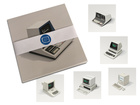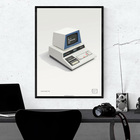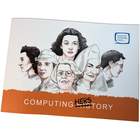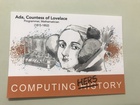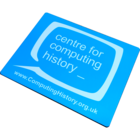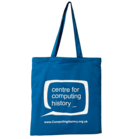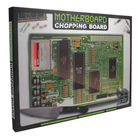
| Home > LEO Computers > LEOPEDIA > Oral & Narrative Histories > Barry Fox: Interview, 19 July 2017 64032 |
Barry Fox: Interview, 19 July 2017 64032
| Home > LEO Computers > LEOPEDIA > Oral & Narrative Histories > Barry Fox: Interview, 19 July 2017 64032 |
Copyright
Barry Fox and LEO Computers Society
Digital audio of a recorded interview with Barry Fox who worked as a programmer on LEO II and LEO III. Barry had a key role in the design and programming of the CLEO compiler. Interviewer: John Daines Transcript editor: John Daines Abstract: Graduated from Birmingham University with a Maths degree before National Service in where he learned programming on an Elliott 402 machine. Enjoying programming he applied for a programming job with LEO. His prior programming experience allowed him to pass the LEO aptitude test with ease and after surviving an interview with David Caminer was immediately taken on as a programmer. His programming career started with working on LEO II applications including the Glynn Mills Officers payroll under John Lewis and then progressed toto systems software working at Minerva Road. After working on the Intercode translator took a key role in the design and programming of the CLEO compiler for LEO III. After the formation of EELM worked on System 4. Moved to Kidsgrove, keeping up his interest in the design of computer languages and as as a result of his expertise was assigned as an EELM representative under John Pinkerton on ECMA. Continued working in this field until in the mid 80s interest in language and compiler design faded and as a result took early retirement at age 55. Whilst at LEO married fellow programmer Margaret James, started family life and had 3 children. In retirement he joined Congleton Sustainability Group and runs a Green Living course for Congleton U3A, and has acted on his life-long interest in cycling as secretary of the local cycling club. Date : 19th July 2017Physical Description : 2 digital files, audio Transcript : LEO COMPUTERS LIMITED - Oral History Project Interview with Barry Fox by John Daines [JD] It's the 19th of July 2017 and I am John Daines. I'm interviewing Barry Fox to give us the story of his involvement with LEO Computers from the earliest days. Good morning Barry. We are recording this interview as part of the LEO Computer Society Oral History Project. The audio version and the transcript will be lodged at a central archive and made available for researchers and members of the public. Perhaps you'd like to introduce yourself? [BF] My name is Barry Fox. I was born in the village of Swanwick in Derbyshire in 1935, and I went to school in Swanwick from 1940 to 1953; including ending up at Swanwick Hall Grammar School where I did maths and physics in the sixth form. I ended up with a state scholarship sitting for the Birmingham University Open Scholarship. I went on to Birmingham University from 1953 to 1956 where I did mathematics and eventually obtained a not very good degree. Between 1956 and ’58 I did National Service in the RAF with the rank of Junior Technician, and that was indicated by one upside down stripe on my arm. I was head hunted, as you might say, by the Science Advisors Department of the Air Ministry and sent on a statistics course and then posted to the Air Ministry in London to pound a desk calculator. I actually learnt programming in the RAF at Bomber Command at High Wycombe where I worked on a simulation of the operation of a squadron of V Bombers which ran on an Elliott 402E. [JD] So that was actually during National Service? [BF] Yes. And that affected my whole career of course 'because that was where I got into computers and why I looked for a job in computers when I finished my National Service. [JD] And what sort of computer was the Elliott 402? [BF] It had a drum, the programmes were stored on a drum. And were taken off the drum as the, as it revolved. So of course the programmes ran very slowly, and if you missed the revolution of the drum, it took the whole revolution of the drum to get the next instruction. So you could make programmes that ran very, very slowly on an Elliott 402E. And that's not the worst of it, it was a drum with a great many tracks but there were only eight heads and seven of these heads were fixed and the eighth one moved between all the other tracks. Now if your programme was too big it had to go onto this track seven, as they said, and then that would, made it even slower because when you move from one track to another you had to wait for the head to move. And if wasn't very well co-ordinated, it would sometimes pick up the instruction before the head had found its proper position. And so it would start execution of a bit of the programme that wasn't, that it wasn't intended to be doing. [JD] Right. So this would all have been in machine code [BF] Yes. [JD] And did you continue doing that until the end of your National Service? [BF] Yes, I think I did, yes. [JD] And then you looked round for a job or a career after that? [BF] Yes. I don't remember who else I applied to apart from LEO, I think I applied to a motor company in Coventry. [JD] Standard Triumph? [BF] Standard, yes, probably, and I think I was offered a job there but I didn't put in many applications. I went back to the appointments people in Birmingham, the university, for their advice and, you know, to get me some application forms and what not. And the man there told me that, well he could help me if I wanted but he thought that programming was a woman’s job. That would have been ’58. Yes. [JD] ’58, right. So they pointed you at LEO? [BF] Maybe, yes. I seem to remember that I was given details of ICT as well, I'm not sure that I ever went for an interview with them. I think maybe when I got the LEO job I might have just sort of stopped looking any further. [JD] Good. So when you joined who interviewed you? Can you remember? [BF] I remember being interviewed by David Caminer (marketing director of LEO Computers Limited). And possibly by other people but I just remember certain bits of the interview with David Caminer. He was interested in what sports I'd been doing, which it turned out that he used to ask everybody, of course he was very keen on sport. And I remember another short conversation about what sort of books I read. [JD] And where were you interviewed at, at that time? [BF] Elms House I believe. And I did an appreciation course which was a very short programming course followed by a test paper to see if you had understood the course. [JD] Oh, the aptitude test would that be? [BF] Yes. [JD] And how did that go? [BF] That was very easy because I had been programming a computer for a year before that [JD] You must have been unusual... [BF] It wasn't a test at all as far as I was concerned. [JD] You must have been unusual in those days that you actually come in with programming experience? [BF] Well I guess so, yes, everybody else was straight out of university I think. I remember the only difficulty I had with that aptitude test was because LEO and the Elliott 402 were quite different sort of machines in, the 402 was a, what was called a ‘one plus one address’ machine. That is it had an address which addressed the date and each instruction also gave the address of the next instruction, rather than just taking the next one in sequence. And so that just produced a little bit of awkwardness when you were doing test statements and things. But apart from five minutes of difficulty with that there was no problem with the aptitude test. [JD] Excellent. So what happened after that? [BF] I think they offered me a job at six hundred pounds a year. Which I thought was very satisfactory at the time. [JD] So, when you started with LEO what did they set you doing? [BF] Well first of all I did a programming course, of course run by John Smythson. A couple of people I remember from that course were Bernard Pearce, Sam Waters. Should be Pierce I think they were probably the only LEO people on that course and the rest of them were customers’, programmers, and I don't remember who they were at all. I also remember we each had a mentor and my mentor was Helen Clarke, who was later Helen Jackson. So that's my recollection of the course. And then I went to work on the Glen Mills army officers’ payroll, which was known as E41. – (Editor: for a description of E41 see pages 229 – 238, chapter 19 by John Lewis in LEO: The Incredible Story of the World’s First Business Computer) It was on LEO II/5, in fact it's probably about the first thing that went onto LEO II/5 I guess, because when we started doing it, at that time, LEO II/5 didn't exist [JD] I don't think it went in till 1959 so. [BF] Yes. So I know that we worked at Elms House on that and Margaret James and Jenny Baker, who had been on a previous course only, the course before me, they also worked on that. And I married Margaret James in 1960. And a few months before that Jenny Baker had married George McLeman. Margaret and Jenny had been friends at university and, so we were all working on E41, we were working for John Lewis and for George McLeman. I don't remember who else was working on that project but some people who were working in the same office were Bernard Pearce I think, and Sam Pierce again ************************** Waters, Kate Keen, Mary Blood, possibly Alan Jacobs and Brian Mills were round there at that time, And around in the same building was David Caminer and Frank Land, Peter Hermon and possibly Leo Fantl. [JD] It has to have been LEO II/5 the first machine with drums. [BF] Yes, it was. [JD] So you must have been ‘intercepting the technology’ if you had to work out how to use the drum? [BF] Yes, we did. After a while we were sent to work at Minerva Road which was where LEO II/5 was being built and we were housed in a porta cabin out the back. And George McLeman was writing a bit of software to sort of manage the drum, I can't remember how the drum was used. [JD] Well there was a pack of cards called B15 and B37 that went on the front of a programme and that used to load stuff on to the drum. [BF] It was probably that stuff that he was doing and when the programmes are loaded you'd hear it go ‘chung, chung, chung, chung, grrrr, as it wrote some out on the drum and then I think the programme went on the drum. [JD] The programme had to bring, really overlays I suppose. [BF] Yes. [JD] Not possible to test it until the machine existed of course? [BF] Well, no, I guess not. I don't think we tested any of the stuff until that machine existed. I mean we didn't, they didn't test any of the stuff on any other LEO II’s. [JD] So the scale of the programmes must have been much bigger than anything written beforehand? [BF] I think it was, I think they said that E41 was a bigger programme than we’d done before, certainly the biggest... [JD] Because all the previous ones had to fit in the main store. [BF] Two thousand words. [JD] That's right. [BF] Yes. It's hardly believable now is it? [JD] So how long were you working on that, roughly? [BF] I'm not very sure. [JD] Did you start testing it on II/5 in the factory? [BF] Yes, we did. And then we moved back to Hartree House when II/5 moved into Hartree House, and continued working on it there. And I guess I must have worked on that until its completion but I don't remember when that was exactly. [JD] And was it presumably written using the David Caminer methodology of a lot of desk checking and so on? [BF] Oh yes. Yes, most definitely. [JD] Did it mainly work when it was tested? [BF] Well no, but they never did, did they? I mean the desk checking thing was very good really. There was a programmer who wrote it and another one checked it and had to sign it all off. He had to make suggestions about the thing and then the original programme had to implement those and then it went back to the checker to sign them off. And I never saw that methodology anywhere else but it seemed to work. But programmes still included bugs of course. When you put them on the machine, they'd either go into a loop or crash the machine. [JD] You also had the first one with magnetic tape as well wasn't it? [BF] That's right, yes. Yes. [JD] So you'd got drums that were new, so you'd got very large scale programmes, with overlays. [BF] Yes. [JD] And you'd got magnetic tape files? [BF] Yes. [JD] Which was all new for LEO as well, so that was really pioneering stuff wasn't it? [BF] And a challenging printer as well. [JD] The Samastronic line printer? (Editor: An innovative, fast, 300 lines per minute printer developed by Powers Samas and adopted as an optional printer by LEO. It was a complex piece of equipment, difficult to maintain and not a commercial success for its manufacturer) [BF] That's right. [JD] I remember running E41. I think that was the one, in spite of the normal verification of tape, that they actually punched the whole lot twice because they weren't quite sure that it would be ready and correct. [BF] That was standard wasn't it? That programmes were always punched up twice. [JD] No, the data was. The data for (the navy and army) payroll would be punched twice and verified. [BF] Yes, yes. There was a twin paper tape reader. [JD] I think, was it half the army officers and all the RAF? Or all the army and half the RAF. But I think they did that twice as well, which was unusual. But it was a big payroll. [BF] I don't know exactly because there were two banks that paid army officers, weren't there? There was Glen Mills and Cox and Kings and we were just working for Glen Mills. [JD] Right. And after Glen Mills what did you move on to? [BF] Well I think I then moved on to LEO III. After that. I don't remember, when would LEO III have started? [JD] 1962 I think LEO 111/1 was delivered into Hartree House. So people would have been working on it before that. [BF] Yes. I remember working in a little office with no windows, just a skylight and I think I was working on some initial stuff about INTERCODE at that time. (Editor: INTERCODE, the LEO III Assembly code) And I guess I was probably working for John Gosden. But I remember he had another person working for him, whose name I can't remember, who did all the micro code for LEO III. If you remember the instructions were micro coded. (Editor: the system devised by Maurice Wilkes for constructing computer instructions in the hardware, and adopted for LEO III) So there was a programming chart, essentially to make the instructions. And this fellow did all of that. I think he was the only person who did any of the, any micro programming. And I think he did all of the micro programming for LEO III. I don't remember anybody else doing any, or anybody else who understood it. And I was working for a while on INTERCODE and it was the time before the instruction set was completely defined, so there was some feedback to that and there was quite a lot of difficulties with some of the multi programming ideas and the mixed radix (operating system) – all stuff that was a bit challenging. [JD] And this was absolutely pioneering stuff, wasn't it, the LEO III? Because there were the micro programmes and there was an operating system to support multi programming, that hadn't happened before. I think John Gosden had a major part in looking at the hardware side of the machine. To make sure that the master routine and the hardware would complement each other. [BF] Yes, I guess so. I don't really know who John Gosden was working for at that time. He was working in Hartree House, but presumably John Pinkerton was involved in this as well, I guess. But I really don't know who John Gosden was working for. (Editor: for a good account of the role John Gosden played in LEO see pages 185 – 206, Chapter 16 by John Gosden in LEO: The Incredible Story of the World’s First Business Computer.) [JD] I've heard that he did play a major part, because it was all new, the concept of having an operating system, that interrupts and that sort of thing. You needed types of instructions that hadn't existed before. And he was a really clever person, I believe. (Editor: He was also well read and knew what was happening in the world of systems software). [BF] Yes, I guess he was. [JD] I only ever saw him once but he had done some very pioneering stuff on LEO I as well, hadn't he? [BF] I don't know. I don't know what he'd done before that. [JD] No. So were you working on the translator for INTERCODE? [BF] I never worked on that because I moved on to CLEO, a compiler for LEO111 and not the translator from INTERCODE. Victor Hodge was the man who did the INTERCODE translator, as far as I remember. In fact I remember working in a room in Hartree House with a whole lot of people. There was Victor Hodge who was working on the INTERCODE translator, and there was Sheila Milne and Adrian Rymell and no doubt other people who were working on the Master Routine. And there was myself and John Amos, Amy Stewart, Donald Monroe and some other people, Ian Mattock at That’s Hamish Dewar not Amy Stewart and I think Munro one time, who were working on CLEO. And John Marsden was around at one time as well, I guess he, I think he was working on the Master Routine. And there were more people than that but I can't remember all of them. John Amos and I were the CLEO language team. I don't know quite how the whole thing originated, except that T.R. Thompson was involved at some stage. And it was in 1960 or so, so that was when COBOL and ALGOL and whatnot came along. And so I guess the people thought that LEO III needed something in that line, but they were probably a bit nervous about tackling COBOL because that was huge and there were horror stories about how big their compilers were and how it took half a day to run them and that sort of thing, and ALGOL wasn't the sort of thing that we were after, (Editor: ALGOL was designed primarily as a language for mathematicians). And so it was decided to define something of our own and I think I started on this design and after a while I was joined by John Amos and we did the, pretty well the whole of the language side for CLEO and some of the high level design of the compiler, which there was then, and the compiler was mostly done then by Hamish Dewar and Donald Monroe and a few other people. We spent a little bit of time at Minerva Road on that project, John Amos and I can't, for the life of me, think why because we didn't see a LEO III there or anything like that. [JD] So you weren't there for testing? [BF] No, no, we weren't there for testing. I remember John Amos and I. There were two sites at Minerva Road, weren't there? There was the one where the LEO II/5 was developed and then just up the road there was another one, another site, and it was in the one further up the road that John Amos and I worked on, and I really don't know why. Because we weren't even starting to write the compiler then, we were just sort of kicking it around, sort of ideas about the sort of top level design of the thing. And I guess we probably weren't there for very long, perhaps we were short of space at Hartree House or something. [JD] Yes. Or they just wanted to give you somewhere quiet to go away and think. [BF] I don't know why it was, I don't know who I was working for. [JD] You were part of actually specifying the language and the structure and so on, were you? [BF] Yes, I was the main designer of the CLEO language and John Amos and I did pretty well all of it I guess. [JD] So, that would have what, taken a couple of years? [BF] Well, like I say, I'm not very good at dates. I moved from LEO in 1966, I think. That was when I moved to Kidsgrove (Editor: Kidsgrove in Staffordshire was were the English Electric computer division was located which became the main design and production facility for English Electric LEO Marconi, EELM). [JD] So had you been working on CLEO right up until then? [BF] Yes, I wasn't working on anything else at LEO up to that time. And I sort of had a vague recollection that the compiler was pretty much working at the time that I left, because I do remember an experience with somebody compiling a very early CLEO programme with the compiler and running it and finding, to their amazement, that it actually ran, you know, it didn't do what programmes had always done, like going into a loop or crashing or anything. It ran and actually did some work and produced some answers and, it wasn't right, of course, but it was, you know, the amazing thing. A programme written in a higher level language, when you first run it will probably run and do something, which was a new experience for us. [JD] So when you were with LEO you worked on the first LEO II with drums and magnetic tape? [BF] Yes. [JD] Writing a very large payroll programme. [BF] In which I played a small part, I must say. [JD] And on LEO III you did some early work on ITERCODE and then played a major part in designing and implementing CLEO? [BF] Yes. [JD] For several years, it was very well regarded as a language, wasn't it? You know, they even put it on to System Four. [BF] That was Ian Mattock who did that wasn't it? [JD] Yes. [BF] Ian Mattock, was he in Kidsgrove when he did that? Ian Mattock moved to Kidsgrove didn't he? [JD] I think so, I think he was, yes. [BF] And then, quite surprisingly, out of the blue he took very early retirement. I don't know how old he was when he retired but I think he was single with no responsibilities and just decided that he could afford to retire and retired, probably in his forties or something like that. [JD] Yes. And why not? So you moved to Kidsgrove in 1966, what prompted that? Was that the company asking you to go or ... [BF] Well when was the merger of LEO and English Electric? [JD] 1963. [BF] Was it? As early as that? [BF] I've consulted with Margaret about when we moved up here because I couldn't remember. But we decided that it was in about, it was in 1966. And we worked this out by what children we had at the time and that sort of thing. [JD] Favourable house moves and so on? [BF] Yes. Well that was certainly one of the things that influenced us, the, we’d heard how cheap houses were here compared with where we were. And we had a two bedroomed house in Hayes at the time and we had the impression that we could, that was an end terraced house, we had the impression that we could sell that and get a four bedroomed detached house up here. So that was a major consideration. But I'd also known sort of things about the Kidsgrove people because I think I had actually applied for a job with English Electric at Kidsgrove while I was at LEO, which I which I didn't take. I don't remember whether I was offered it. But I'd met some of the people and I knew some of the work that they'd been doing on ALGOL which I was quite keen on at the time. So I was interested in a move to Kidsgrove to, because I thought that was a better place to continue with language work than LEO at that time. So that was another consideration. I’d decided by that time that my career in computers would be in programming languages. And I thought Kidsgrove was a better place to pursue that than with LEO in London, whether that was right or not, not sure. [JD] So you went on to System Four? [BF] Yes. And that was at a time when, if you remember, a number of people had gone over to America to RCA for a year or two or whatever it was, and to learn about the RCA machine which System Four was a copy of, of course. [JD] Peter Cropper and Peter Wharton and Peter’s wife. [BF] Yes. Peter’s wife Sheila Milne , who had been previously in charge of the Master Routine at Hartree House. [JD] Peter Wharton’s wife, yes. [BF] And who lived just up the road. [JD] Yes. Well I interviewed them and Peter recommended me to you for this. [BF] So I moved to Kidsgrove. Round about the time that they were, those people were coming back from RCA. I guess I worked on System Four but I can't remember really very much what I did. [JD] There was a big languages team in Kidsgrove wasn't there? I mean they were doing ALGOL code. [BF] Yes, I wasn't really a part of that, that was all pretty much complete when I got there. [JD] Right. [BF] The Kidsgrove ALGOL compiler and the Fortran compiler which was a front end for that compiler. And that was on KDF9 of course, I never worked on KDF9. I have a CV for some of my later stuff that I did, but there's a big gap in the middle of it. I did the CV n 1989. Yes, the beginning of 1989, which I guess was the time that they were thinking of moving us from Kidsgrove to West Gorton And it was a CV for the previous ten years, so that's all there down on paper what I was doing for the ten years up till 1989. But the period from 1966 until the late seventies is not really documented anywhere. But I was doing various language jobs to do with System Four, I guess, and some, one thing that took up a lot of my time was that I was the company representative on standardisation, an ECMA standardisation committee for COBOL. So that involved going off to meetings in various parts of Europe about four times a year and quite a lot of work in between meetings. I reckon that I was spending about half of my time on that sort of work. And I was responsible to John Pinkerton for that because he was the ICL representative on the ECMA general assembly or steering committee or something. (Editor: European Computer Manufacturers Association) I was the representative on the COBOL sub-committee, and all of the representatives worked for John Pinkerton. So I used to get a phone call three or four times a year from John Pinkerton to talk about what had been happening on the COBOL front. And after COBOL I did a similar thing for another language, PL1. [JD] Right. Which is an IBM devised language?.. [BF] That was an IBM thing, yes. But it was also being pushed by IBM for standardisation, so there was, where ECMA came into it. [JD] And then you went to Newrange? [BF] Yes, that's right. [JD] And S3? [BF] Yes, that was before 1980. Yes, that was one of my more interesting jobs, the S3 language definition. Now I wasn't in that at the beginning, the earlier stuff was done by Mike Fallow. Well you probably wouldn't have come across Mike Fallow because I don't think he ever worked for LEO. But I took over the S3 language definition from Mike Fallow and continued it. That should be Mike Falla I did for a short while have some input to the machine designer. I was working with an engineer at Kidsgrove, and I can't remember his name. And I can't remember, and it was a particular instruction that we were working on, and I can't remember what that was either. No, I just don't know. [JD] Never mind. So going on after that, your CV here talks about various language products, going into work benches and process stuff. Would you like to say a bit about that? [BF] Well, what seemed to happen in the 1980’s was that language work seemed to dry up and really writing compilers and high level languages had become really just a mechanical sort of task, more or less. It was all pretty much worked out and there was not anything much more to do on it. So really I, although I considered myself a language man, I was drafted in to work on quite a number of other things which I wasn't greatly interested in to tell you the truth. And, so I guess from 1984 or so, that sort of thing was happening. I wasn't really working on languages. The last sort of thing that I remember, a language project that I remember working on was an AIDE compiler 1980 to ’82. There was some work being done on an AIDE compiler, we were actually writing this compiler. But That’s ADA not AIDE that sort of fell by the wayside and was, it was never completed. It was cancelled, as seemed to happen to an awful lot of projects in Kidsgrove round about that time. I worked with one person in 1983 on that COBOL compiler and he must have worked for Kidsgrove for fifteen years or so. And he said that he'd never worked on a project that wasn't cancelled. [JD] Not very good for job satisfaction really? [BF] No. And, well if you look at my CV the AIDE compiler project was cancelled. The COBOL compiler board was cancelled and the programme master or vision master, I don't remember what happened to that. Certainly the integrated management process work bench, that was cancelled, because, actually that was an international collaboration with some people in France mainly, I think it was an EU collaboration. And after that had been going for a year or two ICL more or less pulled out of it all, pulled most of the people out of it and so eventually that, well that sort of killed our interest in it. I don't, whether the other people went on to finish it or not I don't know. [JD] So when did you leave ICL as it had now become? Or did you retire from there? [BF] I retired from ICL when I was fifty five, that was in 1990, and that was after they'd moved us from Kidsgrove to West Gorton and we were paid travelling expenses for eighteen months or so. But it was quite arduous travelling to West Gorton every day and when the travelling expenses came to an end I decided that, possibly, I could afford to retire and so that's what I did. That was in 1990 when I was fifty five. And I have certainly not regretted retiring at all. [JD] Did you work again? [BF] No. [JD] Contractor or anything? [BF] No. I retired. [JD] Well done. So what about a bit about home life? You said that you'd married when you were in your early LEO days. How about your home life and work life balance and so on? How did working all hours at LEO, perhaps, affect your home life and what children have you had? [BF] When I first joined LEO and when Margaret joined LEO we certainly did use to work all hours and sometimes, literally that. I mean sometimes it was a matter of working all night and I think I did that once or twice, and certainly working long hours. By Friday evening I was absolutely worn out, I used to, before I got married I can remember I used to finish work and go back to my flat and sleep all evening on Friday. But I mean when you got married and you've got children and you can't really do that sort of thing. I mean I'm talking, the time when people were working silly hours because there were panics and things, things that had to be done to deadlines. That was from 1958 through ’60 and the early days of LEO II/5, which would be, well when was LEO II/5 put into Hartree House? [JD] ’59. [BF] ’59? Yes. So ’59, ’60, ’61, there'd be a lot of that sort of thing going on. But I think things were rather more ordered after that time; you couldn't carry on that sort of thing. And certainly we started having children in 1962 and so these things changed then of course. [JD] So you had what, three children? [BF] Three children. [JD] And then you were moved up to Cheshire? [BF] We had two when we moved up to Cheshire, and the third one was born in Kidsgrove, and when she was tiny we moved into this house. Things were easier at Kidsgrove than they had been down in London because the commuting time was very much less and that was quite significant. So, you know, if I finished work at five o'clock at Kidsgrove I could be home here by half past five and so have a good long evening. But it wasn't quite like that when I was in London. I saved a lot of time on commuting, even more when we were living in Kidsgrove, almost a walking distance away from work. But at the time that I joined LEO in 1958 I was single and had no other commitments at all and working late in the evenings was an acceptable thing to do. [JD] Were you a member of the British Computer Society 0r professional bodies? [BF] I was a member of the British Computer Society from very early on and then I let my membership go when they were beginning to operate more like a professional society. [JD] And what's your main activity in retirement? [BF] I've taken an interest in global warming and in sustainability issues and I'm a member of the Congleton Sustainability Group. I think I could probably say that I'm an expert in global warming, I've more expertise in global warming than I ever had in programming languages. Lots of people who know much more about it than I do but by my standards I have more expertise in that than I did in my work things, I guess. So that's been sort of my hobby, and one of the things that I do is that I run a ‘Green Living’ course, as it's called, for that group. and I run it in Congleton U3A, which both Margaret and I are members of, Congleton U3A, which is a very active group. You know what the U3A is? University of the Third Age. [JD] And do you do any computer type work? Or do you just, what, do you use them to help what you're doing? Or do you do any programming these days? [BF] No, I don't do any programming. No. [JD] Or websites? [BF] I've looked at, no, not, no website design, there's quite a bit of that goes on in Congleton U3A. [JD] But, I can imagine, because there must be a lot of ex Kidsgrove people in Congleton. [BF] Yes, that's right.There are some, yes. But Congleton U3A is a very big organisation, it's got fifteen hundred members, not all of whom are in Congleton but, some from surrounding areas, Holmes Chapel and Biddulph and so on. But it's a very large organisation and runs many, many groups and I have been involved with one or two of them from, as a member, and sort of participated in running one or two of them, given presentations and things on various topics, including global warming. I used to run a global warming course there for a few years. And the other thing that took up a lot of my time after retirement was that I became secretary of Congleton Cycling Club. I was secretary of that for eight to ten years, I don't remember exactly. So that took up quite a lot of my time. Margaret had been the secretary of that for a couple of years previously and I took over that job from her. One of the things that we used to do between us, we used to organise and run cycle time trials, every year. So that was another interest, cycling. [JD] So, both of them quite a break from what you'd done in, before? [BF] Yes, well I've been interested in cycling. In fact I used to commute from here to West Gorton on my bicycle. [JD] Right. Well I think we’re getting towards wrapping up. Would you like to just reflect on your experience with LEO and what the LEO part meant to you, and what it gave you, perhaps, for the later part of your career, the things that stick out from the LEO element of your career? [BF] I was very keen on computers when I went into LEO. I mean I'd taken an interest in them when I was in the, doing my National Service and was very keen to get involved and really believed that computers were the future, which of course they were. And, during my time at LEO I was very enthusiastic about it, I think that was the best part of my career, the highlight being the CLEO involvement I guess, and that was the, I guess the, CLEO was the best thing that I did in my career in computers. I did some interesting things after that but that was the, that was the thing that I feel that I can be most pleased about, the CLEO involvement. Lyons had quite a magnificent sports ground at Sudbury, next to Sudbury Underground Station. And there was an annual sports day which I'm told, was called ‘Pennant Day’ at which the various Lyons departments competed. I remember being a member of the tug-of-war team which was urged on by David Caminer who really made us work, Margaret was a star sprinter at that event, and maybe we also played tennis as part of it, I don't actually remember that. It was a really extensive facility, a great many good grass tennis courts and some hard courts as well. And there was an inter-departmental tennis competition which was played in the evenings. Margaret and I both played in the team from time to time. And I also remember Alan Jacobs and Ernest Roberts and occasionally T.R. Thompson playing in the LEO tennis team. Later on I also played for the Lyons team in weekend matches. And Margaret and I used to play tennis there on Sundays with Sam Mitra , who was a LEO engineer. And Charlie O’Brien who was an operator I believe. I don't remember a whole lot about the other facilities except I remember cricket matches going on when we were there. And there was also a large building which I guess included changing rooms and things, it certainly included a Lyons cafe. I was looking this up on the internet recently and it seems that that sports ground, it may still exist, but Lyons sold it to Ealing Council I believe in.in 1967, you think they sold it to IBM? [JD] There's an enormous IBM place at Sudbury now. I think that was systematic of some large companies wasn't it that provided that sort of facility for their staff? [BF] Yes, yes I guess it was. [JD] And it was just up the road from the enormous ice cream factories and Lyons factories at Greenford too. [JD] Right. Well thank you very much Barry. [JD] Well this interview with BF has been recorded by the LEO Computer Society and the Society would like to thank Barry very much for his time and reminiscences. The interview and the transcript form part of an Oral History Project to document the early use of electronic computers in business and other applications, but particularly in business. Any opinions expressed are those of the interviewee, that is Barry, and not of the Society. The copyright of this interview in recorded form and in transcript remains the property of the LEO Computer Society. [End] Provenance : Archive References : CMLEO/LS/AV/FOX-20170719 , DCMLEO20220804003 This exhibit has a reference ID of CH64032. Please quote this reference ID in any communication with the Centre for Computing History. Copyright
|
Click on the Images For Detail
|

